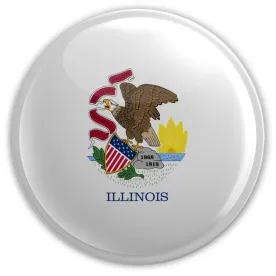Signed by Governor J.B. Pritzker into law June 25, 2021, new amendments to the Equal Pay Act of 2003 alter and clarify the practical implications of obtaining an equal pay registration certificate under the Act.
A requirement enacted through Governor Pritzker’s signing an amendment to the Equal Pay Act on March 23, 2021, businesses with more than 100 employees must obtain an equal pay registration certificate certifying compliance with the Act from the Department of Labor.
To obtain the certificate, businesses are required to pay a $150 filing fee and submit an application containing a statement to the Department of Labor affirming compliance with the equal pay principles set forth in Title VII of the Civil Rights Act, the Equal Pay Act of 1963, the Illinois Human Rights Act, the Equal Wage Act, and the Equal Pay Act of 2003.
The statement signed by an officer or agent of the business must make several affirmations, including representing that
-
The average compensation for the business’s female and minority employees is not consistently below the average compensation for its male and non-minority employees within major job categories when accounting for various distinguishing factors;
-
The business does not restrict certain genders to specific roles and makes employment decisions without regard to sex; and
-
Wage and benefit disparities are corrected by the business when identified.
In addition, to obtain the certificate, businesses required to file a federal EEO-1 report (generally, companies with more than 100 employees) also must include a copy of their most recent EEO-1 report. EEO-1-eligible companies also must submit a “wage records” list of all employees in the past calendar year, categorized by gender and race/ethnicity with corresponding wages paid to each employee over that period, the employee’s start date with the business, and “any other information the Department [of Labor] deems necessary to determine if pay equity exists.” Employers with fewer than 100 employees must certify in writing to the Department of Labor that they are exempt.
The provision allowing “any other information” the Department of Labor deems necessary is a broad grant of deference to future Department of Labor guidance and regulations on the certificate application process. The pragmatic implications of this grant are yet to be determined.
Compliance and Enforcement
The legislative text previously prescribed businesses to comply with Equal Pay registration certificate requirements within three years of the passing of the amendments. The newly passed amendments provide a definitive deadline for compliance, requiring businesses subject to the requirement as of March 23, 2021, to apply for and obtain an equal pay registration certificate between March 24, 2022, and March 23, 2024. The amendment text details no apparent statutory advantages or drawbacks to filing earlier or later within that window.
Initially, the certification required employers to provide the Department of Labor with the system used to set compensation, and required that employers select from the following options: market-based, prevailing wage/union contract, performance pay, internal analysis, or another alternative to be described by the employer. Under the new amendments, the employer is required to describe the “approach” used to determine wages, but the employer is not required to select from any specific system. Instead, the statute states that “acceptable approaches include, but are not limited to, a wage and salary survey.”
Penalties for revocation of or failure to procure the equal pay registration certificate have also changed in the latest iteration of the legislation. Before the June amendments, these deficiencies would subject a business to a fine of one percent of the business’s gross profits. This penalty did not account for a company’s net earnings, thus rendering the penalty potentially more punitive for less profitable businesses. The June additions to the text authorize a penalty of $10,000 per violation for businesses of more than 100 employees.
The amendments also provide a 30-day grace period to correct an inadvertent failure to file an application or to cure deficiencies in an application for the equal pay registration certificate.
Access to Application Data
The June amendments also provide parameters around third-party access to this data. A current employee of a business subject to the equal pay registration certificate requirements may request “anonymized” data regarding their job classification and the pay for that classification.
A provision of the amendments specifies that any “individually identifiable information” submitted as part of the certificate application will be considered confidential and not subject to FOIA requests. Aggregate data, however, is not considered confidential and not exempt from FOIA.
Finally, the amendments outline penalties for Department of Labor employees found to have leaked confidential application information. On the other hand, the Department of Labor is authorized to share aggregate and individually identifiable information submitted with the Illinois Department of Human Rights or the Office of the Attorney General pursuant to either entity’s authority to enforce provisions of the Illinois Human Rights Act.




 />i
/>i

